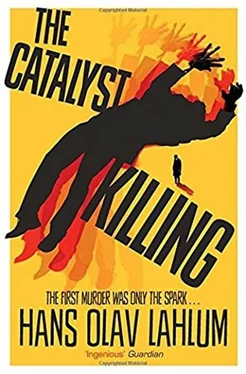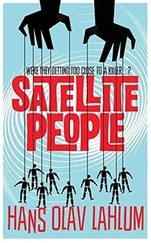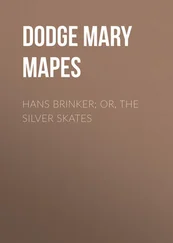Any hope of survival soon vanished. His body and legs had been mangled in the fall, and he was bleeding from the chest and neck. But the hope that he might be able to tell me the little I needed to know still lived as I bent down over him. Blood was dribbling from his mouth, but his eyes were still alive.
Falko Reinhardt whispered a word as soon as I reached him. His voice gave way at the end of the word, but I heard it loud and clear all the same.
‘The window.’
We stared into each other’s eyes for an intense moment. I gripped his shoulders without it making things any better. His shoulder had obviously been broken or dislocated. His body was heavy, burning hot, and limp.
‘What about the window? Which window?’ I almost shouted at him.
I thought for a moment that he could no longer hear me. His eyes slid closed as I spoke and a terrible shudder ran through his body.
‘Look out for the window!’ Falko Reinhardt whispered in a barely audible voice, his eyes shut.
Then he died.
It was a miracle that Falko Reinhardt had managed to stay alive as long as he did. Not only was he injured from the fall, he also had two bullet wounds: one in the foot and the other in his chest. He was wearing jeans, a shirt and boots, but no jacket.
I found only one thing in his pockets, but it was all the more sensational for that. In his right trouser pocket was a Walther pistol with three bullets missing from the magazine. It was an unexpected find which left me even more baffled and anxious about the situation.
I had no choice other than to leave the body where it was on the scree. I ran to the car and drove to a telephone box just over a mile back down the road. From there I alerted the local police and hospital, having first got their numbers from the operator.
I then called Patricia. To my relief, she was obviously ready and waiting, and answered the phone on the second ring. I told her quick as a flash what had happened.
I had expected a pensive silence, but instead I got a swift and hard command.
‘You cannot do anything more for Falko now. Leave him where he is and drive to the top of the cliff straight away. But drive via Henry Alfred Lien’s farm – and drive fast. I think you may get there too late to talk to him, but there is still a slight chance. If Henry Alfred Lien can and wants to tell you what he knows, we may be able to solve this tonight. If not, we still have absolutely no idea what tomorrow might bring!’
As Patricia talked, I realized that this was the only sensible thing to do. By the time she stopped, I was almost frightened by the gravity and alarm in her voice. So I drove back up the mountain at well over the speed limit.
I vaguely registered that it was ten past seven when I swung into the drive up to Henry Alfred Lien’s farm. I hoped that no one had ever driven so fast up to the house. But in the last few minutes I had started to get the same feeling that Patricia had had. Even if Henry Alfred Lien was the person I had seen at the top of the cliff, I would still get there too late to meet him. I had a strong feeling that he had vanished, without knowing where he had gone or why.
As soon as I got to the farm, I saw the first warning that something was amiss: a car that had not been there the last time I visited. It was a blue Peugeot which looked like it had more years behind it than it had to come. It was a direct link to the now dead Falko Reinhardt, and made it even more unlikely that Henry Alfred Lien was still there.
Henry Alfred Lien was not out in the yard waiting to greet me, as he had been the last time. In fact, there was no one to be seen or heard on the farm.
With Falko Reinhardt’s final words etched in my mind, I quickly surveyed all the windows before going up to the front door. There was no sign of any danger. All the windows were closed, with the curtains drawn.
I rang the old-fashioned doorbell and waited for a minute or two without any response. This only served to heighten the feeling that the bird had flown the nest. I rang the bell again and rapped hard on the door, without expecting an answer. There was still no reaction from inside.
That was when I noticed the second warning: the door was not locked.
The lights were on in the hallway and living room. This reinforced the impression that Henry Alfred Lien had left his home in a hurry. I nodded when I went into the living room and saw that the table where I had sat a couple of days ago was again set for coffee and cake for two. Either the expected guest had not come, or the person in question had shared such dramatic news that the party was over before it began. The cups, the plates and the cakes were all untouched.
It was only when I popped my head round the door into the kitchen as a matter of routine that I understood I had totally misinterpreted and underestimated the situation.
Henry Alfred Lien had not left his home in a hurry. He was still there.
There was no mistaking his broad body, even though he was lying face down. I put my fingers to his neck and could quickly confirm that there was no pulse, and that all life had left his body. It was already getting cold. I did not need to look long for the cause. When I turned him over, the bullet hole in his forehead resembled an accusing third eye.
I let go of the second victim of the evening and hid my face in my hands for a moment. The whole situation felt like a surreal nightmare, and I sincerely hoped it was. But I did not wake up. So once I had established that there were no weapons or other people on the ground floor, I went over to the late Henry Alfred Lien’s living-room table to use his phone.
As expected, the sheriff was out on a call, but his wife answered the phone and promised to give him the message about a second suspicious death as soon as possible. She almost burst into tears when I told her where he should come and who it involved. Even though Henry Alfred Lien’s story during the war was well known, and even though he had kept a low profile as a widower in recent years, he had been a highly respected man and no one in the local community had a bad word to say about him. He had been a good man who had done some unfortunate things during the war, but it was hard to imagine who would want to kill him now.
I replied that it was in truth a very odd and tragic case, and that I had to get on with the investigation. She thanked me. When I put down the telephone, I felt even more uncertain about who Henry Alfred Lien actually was and what had happened to him.
My conversation with the hospital was less friendly. The operator recognized my voice, and suspected that I was a morbid prankster when I called to tell them about a second murder in the space of an hour. Fortunately, I managed to convince him, and he finally agreed to send the ambulance over as soon as it returned from the last callout.
And then, once again, I called Patricia. This time she answered after one ring, with an impatient: ‘Well, what is going on?’
I told her that I had found Henry Alfred Lien and that I was now sitting alone in his house. Patricia let out a deep sigh.
‘That’s just as I thought – and feared. The number of murders is rising, and the danger that it might continue to rise over the next few days is high. Come here as soon as you get back to Oslo, and I will have dinner waiting for you, no matter how late it is. In the meantime, check to see if Henry Alfred Lien has the local history yearbook for Valdres, 1955 in his bookshelf. But more importantly, search for a diary, a note or any other document that might tell us a bit more about what happened – and about what might happen!’
There was a moment’s silence as I contemplated what this meant. Patricia took a deep breath and continued.
Читать дальше












